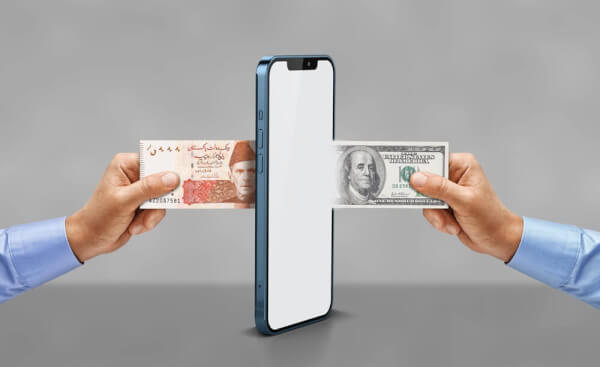Money Travels Review Australia: Fees, Limits, and How It Works
Planning an international transfer? Our Money Travels review covers everything from fees, exchange rates, and safety to help you decide if it's right for you.

Tax is a tricky topic. And it can be especially daunting if you’re an Australian expat living overseas, and sending money home - or if you’re a foreign citizen living in Australia and wanting to bring funds into the country.
Moving your money into Australia is easy enough, with a fast and safe money transfer service like Wise. However, knowing what payments you need to declare - and how - can be harder.
Getting professional, personalised advice on your tax affairs is necessary to make sure you don’t fall foul of the law. To get you started, here’s an overview of some of the main considerations when it comes to declaring, and paying tax on money transferred into Australia from overseas.
Before you get started, a word. Banks and money transfer providers often give you a bad exchange rate to make extra profits.
| 💰 Wise provides you the real exchange rate and low transparent transfer fees shown upfront. |
|---|
Wise is different. Its smart new technology skips hefty international transfer fees by connecting local bank accounts all around the world.
Oh, and while you’re at it, check out Wise’s multi-currency account. Where you can store over 40 currencies, receive and send dozens of currencies all from the same account.
Now, back to what you came here to read.
There are several major considerations to be taken into account when figuring out if money transferred to Australia from overseas is taxable.
As with all things related to tax, this is a fairly complex area of law, so getting the advice of a tax accountant or other professional is a good idea.
In general terms, if you have paid tax on income already in another country, you’re unlikely to have to pay tax again when you bring the money into Australia, as Australia has a double taxation agreement with many countries.¹
However, for payments that involve transferring cash of A$10,000 or more³, or an “international electronic funds transfer instruction” (IFTI-E) of any amount⁴, either you or the company processing the payment might have to report the transaction to AUSTRAC (the Australian Transaction Reports and analysis Centre). More on AUSTRAC in a moment.
AUSTRAC — Australian Transaction Reports and Analysis Centre — is the Australian government’s agency working to counter money-laundering and the funding of terrorism. As such, they track money coming into — and going out of — the country, to make sure it’s from legitimate sources, and is being used legally.²
If you’re sending an amount worth the equivalent of $10,000 or more into Australia, your bank or money transfer service might ask for your ID documents, information about where the payment is from, and who it's going to. Some companies will take this information for every transaction, as they’re obliged to report payments to AUSTRAC - both large and small - and anything which might look suspicious.
It’s good to know that, although payments are reported to AUSTRAC, that doesn’t necessarily mean that there's any tax to pay on them. This will depend on the factors outlined above. If any government agency suspects that there may be tax to pay, an enquiry will be opened and you’ll need to provide some further information.
However, as long as you have complied with the tax rules in the country the funds originated from, it’s unlikely you'll be expected to pay tax on the same income again.
There’s no limit on the amount of physical currency you can bring into Australia. However, if you carry more than $10,000, or the foreign currency equivalent of that amount in cash, you’ll have to declare it to customs on the way into the country. If you don’t declare amounts over this value, you could be liable for a fine.⁵
It’s also important to note that ‘structuring’ - the practice of splitting money so that individuals all carry slightly under $10,000 - is also not allowed.
So if you have a family coming through customs, with every family member - including young children - each carrying $9,999, this would be seen as a ploy to avoid reporting the currency, and arouse suspicion.
In this case you can expect an investigation to be launched into exactly where the money is from, and you may be fined for trying to get round the rules.⁵
To be completely sure you’re fulfilling all your tax obligations, it’s a good idea to talk your personal situation over with a tax accountant. Your tax liabilities will depend a lot on the circumstances. In most cases, however, money received from abroad - either income from a job, other income such as money generated from interest or a rental property, monetary gifts or inheritance - needs to be included as part of your regular tax declaration.⁷
The details you provide will then usually be checked against the local records wherever the money originated from. So if you have been working overseas, and paying local tax, the Australian authorities will check with their counterparts that you’ve already paid all your dues.
Then, so long as it’s a country which Australia has a double tax treaty with, you shouldn’t need to pay tax twice. More on double tax treaties, and how they can help you, below.⁶
💵 Moving big money? Send over 20,000 GBP or equivalent within a month with Wise, and you'll get even lower fees - as low as 0.1% - for all your transfers that month. Whether it's one large transfer or multiple smaller ones in any of the global currencies we support, you can save more with Wise.
👉🏻 Learn more about large amount transfers with Wise
If you’re moving to Australia and plan to work there, then as well as opening a local bank account in Australia, you’ll need to declare your income for tax purposes. You’ll then have to pay tax on eligible income.
You’re also advised to register for a Tax File Number (TFN). This is how the Australian government keeps a record of the tax you’ve paid. Without it you'll pay higher tax rates, and won’t be entitled to any government benefits.⁸
It’s good to know that thanks to double taxation treaties, you shouldn’t have to pay tax twice on the same income. Double taxation treaties exist to allow governments to check the tax paid by someone while living or earning money abroad.
They’re agreements that if a citizen has paid tax in one country, that payment can be offset against tax owed elsewhere.⁶ Australia has double taxation agreements with over 40 other countries.¹ If you have earned money in one of these countries before coming to Australia, you’ll still need to declare it on your tax return - but so long as all your tax affairs were managed properly, you shouldn’t need to pay more tax on that portion of your income.
To get an idea of the tax you might need to pay in Australia, you can use the Australian government’s Simple tax calculator. You can find it here. This handy tool calculates individual tax rates for both resident and non-resident taxpayers, and can be completed in just a few minutes.
If you need a more robust calculation, there’s also a more complex version of the calculator available on the Australian tax authorities’ website.
If you’re thinking of transferring money into Australia for any reason, you have a number of different options. You could arrange a bank transfer with your regular bank, on the phone, online, or in person by visiting a branch.
These are familiar routes - but the fees can be high, especially when setting up an international payment in a bank branch. Watch out especially for bank charges added thanks to the SWIFT network, which can mean that your recipient receives far less into their bank account than you expected.
You could also consider using an alternative provider such as Western Union or PayPal. These options are convenient - but there are high fees to pay, and the exchange rate you’re offered might not be the best available.
Often banks and international payment companies will take the mid-market exchange rate - the one you’ll find on Google - and add a markup to cover their own profit. This is an extra fee, on top of any administrative costs you might pay. If you make an international payment to anAustralian PayPal account, for example, the exchange rate used will include markup of up to 4% on the real exchange rate.
Before you commit to making a transfer, it’s a smart idea to compare the exchange rate you’re offered to the mid-market rate using an online currency converter to make sure you’re not being ripped off.
You can also see what you get with our calculator here below:
If you’re worried about high fees or a poor exchange rate, check out Wise as a great value alternative. All transfers with Wise are made using the real, mid-market exchange rate. You’ll just pay a small upfront fee, with no further hidden costs to worry about. That can mean that you pay less in charges overall, compared to using a regular bank.
And if you make regular international payments, you might find that you benefit even more from a multi-currency account from Wise. This smart new account lets you hold your balance in any of over 40 different currencies, all in one place. You can check your balance across different currencies at a glance, and then switch between them as and when you need to. All transactions are carried out using the real, mid-market exchange rate, and just a small transparent fee.
Register your Wise account in minutes 🚀
Moving your money across borders shouldn’t be hard. There are many choices out there. However, making sure you keep in line with the tax legislation wherever you are - and wherever you’re sending your money, is crucial.
Getting your tax declaration wrong can be a costly mistake. If you're planning on sending money to Australia, maybe because you have an overseas income and want to keep it in your savings account back home, or because you’ve received a gift or inheritance from a family member based overseas, individual tax advice is essential.
That way you can rest easy knowing that you’ve fulfilled all your obligations, and there’s nothing to worry about.
Sources checked on 26 March 2022
*Please see terms of use and product availability for your region or visit Wise fees and pricing for the most up to date pricing and fee information.
This publication is provided for general information purposes and does not constitute legal, tax or other professional advice from Wise Payments Limited or its subsidiaries and its affiliates, and it is not intended as a substitute for obtaining advice from a financial advisor or any other professional.
We make no representations, warranties or guarantees, whether expressed or implied, that the content in the publication is accurate, complete or up to date.

Planning an international transfer? Our Money Travels review covers everything from fees, exchange rates, and safety to help you decide if it's right for you.

Planning a large money transfer with ING Bank in Australia? Discover fees, daily limits, processing times, and alternatives.

Thinking of transferring money with Revolut? Our guide breaks down their money transfer fees, exchange rates, and limits.

If you’re looking for a way to send money abroad, especially to China, you may have come across Panda Remit. A relative newcomer among money transfer...

Planning a large money transfer with St. George Bank in Australia? Discover fees, daily limits, processing times, and alternatives.

Planning a large money transfer with Bankwest Bank in Australia? Discover fees, daily limits, processing times, and alternatives.